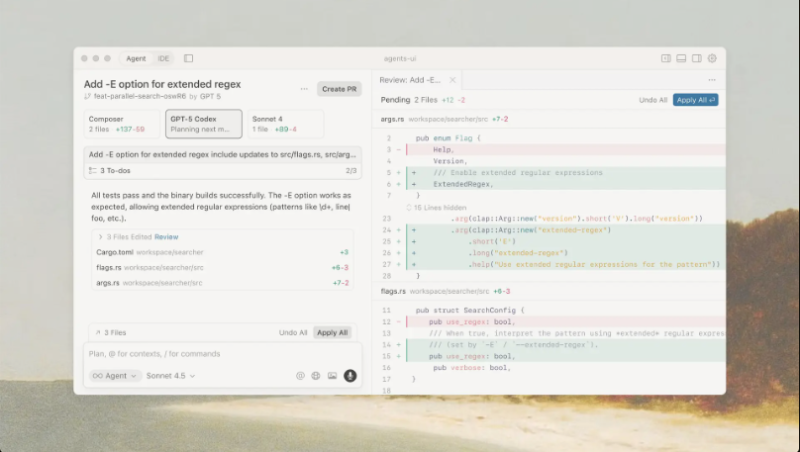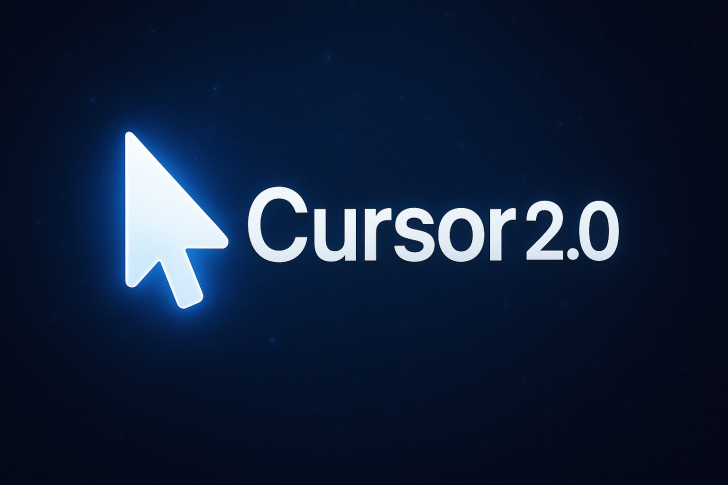On October 29, 2025, Cursor dropped version 2.0—a game-changing update that could reshape AI-driven development. The release brings two major innovations: Composer, a speedy and smart AI coding model, and a multi-agent system that lets several AI assistants tackle different tasks at once. With these additions, Cursor is positioning itself as a serious competitor to tools like GitHub Copilot and Replit Ghostwriter in the race to automate coding.
What Makes Cursor 2.0 Special:

- Composer Model: This new AI runs four times faster than similar systems while keeping up strong reasoning and accuracy. Most coding tasks wrap up in under 30 seconds. It was trained using codebase-wide semantic search, meaning it actually understands project dependencies and architecture—not just individual files. That makes it particularly useful for bigger, enterprise-level projects where context matters.
- Multi-Agent Interface: Instead of working file by file, you now define goals and let AI agents handle the details. Multiple agents can work in parallel on different tasks—or even compete to solve the same problem—without getting in each other's way. The platform picks the best result automatically, which leads to higher-quality code, especially on tricky projects.
- Built-In Testing and Review: As AI writes more code, the real bottleneck becomes reviewing and testing it. Cursor 2.0 tackles this head-on with instant code review tools and a native browser-based testing environment. Agents can test their own code, catch errors, and submit fixes autonomously—creating a self-correcting feedback loop.
Why It Matters:
Cursor 2.0 isn't just an upgrade—it's pointing toward a future where developers spend less time typing code and more time orchestrating intelligent systems that build, test, and deploy software together. If this vision pans out, being a developer might look very different in a few years: less manual coding, more strategic design of AI agent workflows. It's part of a bigger trend as tools like GPT-4, Gemini, and Claude evolve into complex multi-agent systems capable of handling entire projects with minimal human input.
 Saad Ullah
Saad Ullah

 Saad Ullah
Saad Ullah


